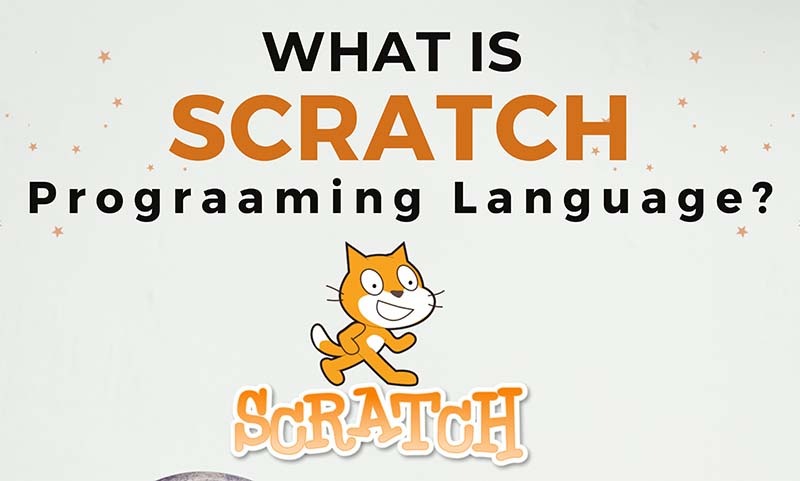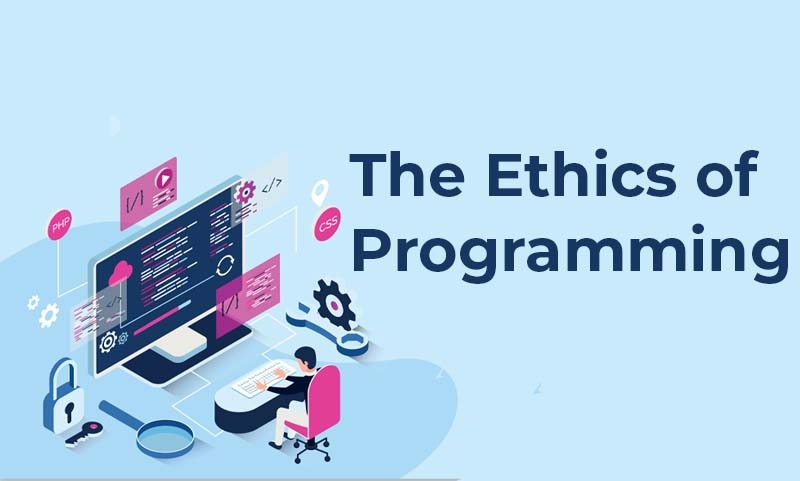The Impact of Artificial Intelligence on Society
Artificial intelligence (AI) is a rapidly developing technology that is having a major impact on society. AI is being u...
Severity: 8192
Message: Creation of dynamic property CI_URI::$config is deprecated
Filename: core/URI.php
Line Number: 101
Backtrace:
File: /home2/umernaze/public_html/mycodeskills/index.php
Line: 317
Function: require_once
Severity: 8192
Message: Creation of dynamic property CI_Router::$uri is deprecated
Filename: core/Router.php
Line Number: 127
Backtrace:
File: /home2/umernaze/public_html/mycodeskills/index.php
Line: 317
Function: require_once
Severity: 8192
Message: Creation of dynamic property Blog::$benchmark is deprecated
Filename: core/Controller.php
Line Number: 75
Backtrace:
File: /home2/umernaze/public_html/mycodeskills/application/controllers/Blog.php
Line: 6
Function: __construct
File: /home2/umernaze/public_html/mycodeskills/index.php
Line: 317
Function: require_once
Severity: 8192
Message: Creation of dynamic property Blog::$hooks is deprecated
Filename: core/Controller.php
Line Number: 75
Backtrace:
File: /home2/umernaze/public_html/mycodeskills/application/controllers/Blog.php
Line: 6
Function: __construct
File: /home2/umernaze/public_html/mycodeskills/index.php
Line: 317
Function: require_once
Severity: 8192
Message: Creation of dynamic property Blog::$config is deprecated
Filename: core/Controller.php
Line Number: 75
Backtrace:
File: /home2/umernaze/public_html/mycodeskills/application/controllers/Blog.php
Line: 6
Function: __construct
File: /home2/umernaze/public_html/mycodeskills/index.php
Line: 317
Function: require_once
Severity: 8192
Message: Creation of dynamic property Blog::$log is deprecated
Filename: core/Controller.php
Line Number: 75
Backtrace:
File: /home2/umernaze/public_html/mycodeskills/application/controllers/Blog.php
Line: 6
Function: __construct
File: /home2/umernaze/public_html/mycodeskills/index.php
Line: 317
Function: require_once
Severity: 8192
Message: Creation of dynamic property Blog::$utf8 is deprecated
Filename: core/Controller.php
Line Number: 75
Backtrace:
File: /home2/umernaze/public_html/mycodeskills/application/controllers/Blog.php
Line: 6
Function: __construct
File: /home2/umernaze/public_html/mycodeskills/index.php
Line: 317
Function: require_once
Severity: 8192
Message: Creation of dynamic property Blog::$uri is deprecated
Filename: core/Controller.php
Line Number: 75
Backtrace:
File: /home2/umernaze/public_html/mycodeskills/application/controllers/Blog.php
Line: 6
Function: __construct
File: /home2/umernaze/public_html/mycodeskills/index.php
Line: 317
Function: require_once
Severity: 8192
Message: Creation of dynamic property Blog::$exceptions is deprecated
Filename: core/Controller.php
Line Number: 75
Backtrace:
File: /home2/umernaze/public_html/mycodeskills/application/controllers/Blog.php
Line: 6
Function: __construct
File: /home2/umernaze/public_html/mycodeskills/index.php
Line: 317
Function: require_once
Severity: 8192
Message: Creation of dynamic property Blog::$router is deprecated
Filename: core/Controller.php
Line Number: 75
Backtrace:
File: /home2/umernaze/public_html/mycodeskills/application/controllers/Blog.php
Line: 6
Function: __construct
File: /home2/umernaze/public_html/mycodeskills/index.php
Line: 317
Function: require_once
Severity: 8192
Message: Creation of dynamic property Blog::$output is deprecated
Filename: core/Controller.php
Line Number: 75
Backtrace:
File: /home2/umernaze/public_html/mycodeskills/application/controllers/Blog.php
Line: 6
Function: __construct
File: /home2/umernaze/public_html/mycodeskills/index.php
Line: 317
Function: require_once
Severity: 8192
Message: Creation of dynamic property Blog::$security is deprecated
Filename: core/Controller.php
Line Number: 75
Backtrace:
File: /home2/umernaze/public_html/mycodeskills/application/controllers/Blog.php
Line: 6
Function: __construct
File: /home2/umernaze/public_html/mycodeskills/index.php
Line: 317
Function: require_once
Severity: 8192
Message: Creation of dynamic property Blog::$input is deprecated
Filename: core/Controller.php
Line Number: 75
Backtrace:
File: /home2/umernaze/public_html/mycodeskills/application/controllers/Blog.php
Line: 6
Function: __construct
File: /home2/umernaze/public_html/mycodeskills/index.php
Line: 317
Function: require_once
Severity: 8192
Message: Creation of dynamic property Blog::$lang is deprecated
Filename: core/Controller.php
Line Number: 75
Backtrace:
File: /home2/umernaze/public_html/mycodeskills/application/controllers/Blog.php
Line: 6
Function: __construct
File: /home2/umernaze/public_html/mycodeskills/index.php
Line: 317
Function: require_once
Severity: 8192
Message: Creation of dynamic property Blog::$load is deprecated
Filename: core/Controller.php
Line Number: 78
Backtrace:
File: /home2/umernaze/public_html/mycodeskills/application/controllers/Blog.php
Line: 6
Function: __construct
File: /home2/umernaze/public_html/mycodeskills/index.php
Line: 317
Function: require_once
Severity: 8192
Message: Creation of dynamic property Blog::$db is deprecated
Filename: core/Loader.php
Line Number: 390
Backtrace:
File: /home2/umernaze/public_html/mycodeskills/application/controllers/Blog.php
Line: 6
Function: __construct
File: /home2/umernaze/public_html/mycodeskills/index.php
Line: 317
Function: require_once
Severity: 8192
Message: Creation of dynamic property CI_DB_mysqli_driver::$failover is deprecated
Filename: database/DB_driver.php
Line Number: 371
Backtrace:
File: /home2/umernaze/public_html/mycodeskills/application/controllers/Blog.php
Line: 6
Function: __construct
File: /home2/umernaze/public_html/mycodeskills/index.php
Line: 317
Function: require_once
Severity: 8192
Message: Creation of dynamic property Blog::$pagination is deprecated
Filename: core/Loader.php
Line Number: 1277
Backtrace:
File: /home2/umernaze/public_html/mycodeskills/application/controllers/Blog.php
Line: 6
Function: __construct
File: /home2/umernaze/public_html/mycodeskills/index.php
Line: 317
Function: require_once
Severity: 8192
Message: Return type of CI_Session_files_driver::open($save_path, $name) should either be compatible with SessionHandlerInterface::open(string $path, string $name): bool, or the #[\ReturnTypeWillChange] attribute should be used to temporarily suppress the notice
Filename: drivers/Session_files_driver.php
Line Number: 132
Backtrace:
File: /home2/umernaze/public_html/mycodeskills/application/controllers/Blog.php
Line: 6
Function: __construct
File: /home2/umernaze/public_html/mycodeskills/index.php
Line: 317
Function: require_once
Severity: 8192
Message: Return type of CI_Session_files_driver::close() should either be compatible with SessionHandlerInterface::close(): bool, or the #[\ReturnTypeWillChange] attribute should be used to temporarily suppress the notice
Filename: drivers/Session_files_driver.php
Line Number: 290
Backtrace:
File: /home2/umernaze/public_html/mycodeskills/application/controllers/Blog.php
Line: 6
Function: __construct
File: /home2/umernaze/public_html/mycodeskills/index.php
Line: 317
Function: require_once
Severity: 8192
Message: Return type of CI_Session_files_driver::read($session_id) should either be compatible with SessionHandlerInterface::read(string $id): string|false, or the #[\ReturnTypeWillChange] attribute should be used to temporarily suppress the notice
Filename: drivers/Session_files_driver.php
Line Number: 164
Backtrace:
File: /home2/umernaze/public_html/mycodeskills/application/controllers/Blog.php
Line: 6
Function: __construct
File: /home2/umernaze/public_html/mycodeskills/index.php
Line: 317
Function: require_once
Severity: 8192
Message: Return type of CI_Session_files_driver::write($session_id, $session_data) should either be compatible with SessionHandlerInterface::write(string $id, string $data): bool, or the #[\ReturnTypeWillChange] attribute should be used to temporarily suppress the notice
Filename: drivers/Session_files_driver.php
Line Number: 233
Backtrace:
File: /home2/umernaze/public_html/mycodeskills/application/controllers/Blog.php
Line: 6
Function: __construct
File: /home2/umernaze/public_html/mycodeskills/index.php
Line: 317
Function: require_once
Severity: 8192
Message: Return type of CI_Session_files_driver::destroy($session_id) should either be compatible with SessionHandlerInterface::destroy(string $id): bool, or the #[\ReturnTypeWillChange] attribute should be used to temporarily suppress the notice
Filename: drivers/Session_files_driver.php
Line Number: 313
Backtrace:
File: /home2/umernaze/public_html/mycodeskills/application/controllers/Blog.php
Line: 6
Function: __construct
File: /home2/umernaze/public_html/mycodeskills/index.php
Line: 317
Function: require_once
Severity: 8192
Message: Return type of CI_Session_files_driver::gc($maxlifetime) should either be compatible with SessionHandlerInterface::gc(int $max_lifetime): int|false, or the #[\ReturnTypeWillChange] attribute should be used to temporarily suppress the notice
Filename: drivers/Session_files_driver.php
Line Number: 354
Backtrace:
File: /home2/umernaze/public_html/mycodeskills/application/controllers/Blog.php
Line: 6
Function: __construct
File: /home2/umernaze/public_html/mycodeskills/index.php
Line: 317
Function: require_once
Severity: Warning
Message: session_set_cookie_params(): Session cookie parameters cannot be changed after headers have already been sent
Filename: Session/Session.php
Line Number: 291
Backtrace:
File: /home2/umernaze/public_html/mycodeskills/application/controllers/Blog.php
Line: 6
Function: __construct
File: /home2/umernaze/public_html/mycodeskills/index.php
Line: 317
Function: require_once
Severity: Warning
Message: ini_set(): Session ini settings cannot be changed after headers have already been sent
Filename: drivers/Session_files_driver.php
Line Number: 108
Backtrace:
File: /home2/umernaze/public_html/mycodeskills/application/controllers/Blog.php
Line: 6
Function: __construct
File: /home2/umernaze/public_html/mycodeskills/index.php
Line: 317
Function: require_once
Severity: Warning
Message: session_set_save_handler(): Session save handler cannot be changed after headers have already been sent
Filename: Session/Session.php
Line Number: 110
Backtrace:
File: /home2/umernaze/public_html/mycodeskills/application/controllers/Blog.php
Line: 6
Function: __construct
File: /home2/umernaze/public_html/mycodeskills/index.php
Line: 317
Function: require_once
Severity: Warning
Message: session_start(): Session cannot be started after headers have already been sent
Filename: Session/Session.php
Line Number: 143
Backtrace:
File: /home2/umernaze/public_html/mycodeskills/application/controllers/Blog.php
Line: 6
Function: __construct
File: /home2/umernaze/public_html/mycodeskills/index.php
Line: 317
Function: require_once
Severity: 8192
Message: Creation of dynamic property Blog::$session is deprecated
Filename: core/Loader.php
Line Number: 1277
Backtrace:
File: /home2/umernaze/public_html/mycodeskills/application/controllers/Blog.php
Line: 6
Function: __construct
File: /home2/umernaze/public_html/mycodeskills/index.php
Line: 317
Function: require_once
Severity: 8192
Message: Creation of dynamic property Blog::$form_validation is deprecated
Filename: core/Loader.php
Line Number: 1277
Backtrace:
File: /home2/umernaze/public_html/mycodeskills/application/controllers/Blog.php
Line: 6
Function: __construct
File: /home2/umernaze/public_html/mycodeskills/index.php
Line: 317
Function: require_once
Severity: 8192
Message: Creation of dynamic property Blog::$BlogsModel is deprecated
Filename: core/Loader.php
Line Number: 353
Backtrace:
File: /home2/umernaze/public_html/mycodeskills/application/controllers/Blog.php
Line: 7
Function: model
File: /home2/umernaze/public_html/mycodeskills/index.php
Line: 317
Function: require_once
Severity: 8192
Message: Creation of dynamic property Blog::$HomeModel is deprecated
Filename: core/Loader.php
Line Number: 353
Backtrace:
File: /home2/umernaze/public_html/mycodeskills/application/controllers/Blog.php
Line: 8
Function: model
File: /home2/umernaze/public_html/mycodeskills/index.php
Line: 317
Function: require_once
Severity: 8192
Message: Creation of dynamic property Blog::$MetadataModel is deprecated
Filename: core/Loader.php
Line Number: 353
Backtrace:
File: /home2/umernaze/public_html/mycodeskills/application/controllers/Blog.php
Line: 9
Function: model
File: /home2/umernaze/public_html/mycodeskills/index.php
Line: 317
Function: require_once
Severity: 8192
Message: Creation of dynamic property Blog::$SysVarModel is deprecated
Filename: core/Loader.php
Line Number: 353
Backtrace:
File: /home2/umernaze/public_html/mycodeskills/application/core/MY_Loader.php
Line: 80
Function: model
File: /home2/umernaze/public_html/mycodeskills/application/controllers/Blog.php
Line: 35
Function: homeTemplate
File: /home2/umernaze/public_html/mycodeskills/index.php
Line: 317
Function: require_once
Severity: 8192
Message: Creation of dynamic property Blog::$TrafficModel is deprecated
Filename: core/Loader.php
Line Number: 353
Backtrace:
File: /home2/umernaze/public_html/mycodeskills/application/core/MY_Loader.php
Line: 84
Function: model
File: /home2/umernaze/public_html/mycodeskills/application/controllers/Blog.php
Line: 35
Function: homeTemplate
File: /home2/umernaze/public_html/mycodeskills/index.php
Line: 317
Function: require_once
Severity: 8192
Message: Creation of dynamic property MY_Loader::$benchmark is deprecated
Filename: core/Loader.php
Line Number: 925
Backtrace:
File: /home2/umernaze/public_html/mycodeskills/application/core/MY_Loader.php
Line: 123
Function: view
File: /home2/umernaze/public_html/mycodeskills/application/controllers/Blog.php
Line: 35
Function: homeTemplate
File: /home2/umernaze/public_html/mycodeskills/index.php
Line: 317
Function: require_once
Severity: 8192
Message: Creation of dynamic property MY_Loader::$hooks is deprecated
Filename: core/Loader.php
Line Number: 925
Backtrace:
File: /home2/umernaze/public_html/mycodeskills/application/core/MY_Loader.php
Line: 123
Function: view
File: /home2/umernaze/public_html/mycodeskills/application/controllers/Blog.php
Line: 35
Function: homeTemplate
File: /home2/umernaze/public_html/mycodeskills/index.php
Line: 317
Function: require_once
Severity: 8192
Message: Creation of dynamic property MY_Loader::$config is deprecated
Filename: core/Loader.php
Line Number: 925
Backtrace:
File: /home2/umernaze/public_html/mycodeskills/application/core/MY_Loader.php
Line: 123
Function: view
File: /home2/umernaze/public_html/mycodeskills/application/controllers/Blog.php
Line: 35
Function: homeTemplate
File: /home2/umernaze/public_html/mycodeskills/index.php
Line: 317
Function: require_once
Severity: 8192
Message: Creation of dynamic property MY_Loader::$log is deprecated
Filename: core/Loader.php
Line Number: 925
Backtrace:
File: /home2/umernaze/public_html/mycodeskills/application/core/MY_Loader.php
Line: 123
Function: view
File: /home2/umernaze/public_html/mycodeskills/application/controllers/Blog.php
Line: 35
Function: homeTemplate
File: /home2/umernaze/public_html/mycodeskills/index.php
Line: 317
Function: require_once
Severity: 8192
Message: Creation of dynamic property MY_Loader::$utf8 is deprecated
Filename: core/Loader.php
Line Number: 925
Backtrace:
File: /home2/umernaze/public_html/mycodeskills/application/core/MY_Loader.php
Line: 123
Function: view
File: /home2/umernaze/public_html/mycodeskills/application/controllers/Blog.php
Line: 35
Function: homeTemplate
File: /home2/umernaze/public_html/mycodeskills/index.php
Line: 317
Function: require_once
Severity: 8192
Message: Creation of dynamic property MY_Loader::$uri is deprecated
Filename: core/Loader.php
Line Number: 925
Backtrace:
File: /home2/umernaze/public_html/mycodeskills/application/core/MY_Loader.php
Line: 123
Function: view
File: /home2/umernaze/public_html/mycodeskills/application/controllers/Blog.php
Line: 35
Function: homeTemplate
File: /home2/umernaze/public_html/mycodeskills/index.php
Line: 317
Function: require_once
Severity: 8192
Message: Creation of dynamic property MY_Loader::$exceptions is deprecated
Filename: core/Loader.php
Line Number: 925
Backtrace:
File: /home2/umernaze/public_html/mycodeskills/application/core/MY_Loader.php
Line: 123
Function: view
File: /home2/umernaze/public_html/mycodeskills/application/controllers/Blog.php
Line: 35
Function: homeTemplate
File: /home2/umernaze/public_html/mycodeskills/index.php
Line: 317
Function: require_once
Severity: 8192
Message: Creation of dynamic property MY_Loader::$router is deprecated
Filename: core/Loader.php
Line Number: 925
Backtrace:
File: /home2/umernaze/public_html/mycodeskills/application/core/MY_Loader.php
Line: 123
Function: view
File: /home2/umernaze/public_html/mycodeskills/application/controllers/Blog.php
Line: 35
Function: homeTemplate
File: /home2/umernaze/public_html/mycodeskills/index.php
Line: 317
Function: require_once
Severity: 8192
Message: Creation of dynamic property MY_Loader::$output is deprecated
Filename: core/Loader.php
Line Number: 925
Backtrace:
File: /home2/umernaze/public_html/mycodeskills/application/core/MY_Loader.php
Line: 123
Function: view
File: /home2/umernaze/public_html/mycodeskills/application/controllers/Blog.php
Line: 35
Function: homeTemplate
File: /home2/umernaze/public_html/mycodeskills/index.php
Line: 317
Function: require_once
Severity: 8192
Message: Creation of dynamic property MY_Loader::$security is deprecated
Filename: core/Loader.php
Line Number: 925
Backtrace:
File: /home2/umernaze/public_html/mycodeskills/application/core/MY_Loader.php
Line: 123
Function: view
File: /home2/umernaze/public_html/mycodeskills/application/controllers/Blog.php
Line: 35
Function: homeTemplate
File: /home2/umernaze/public_html/mycodeskills/index.php
Line: 317
Function: require_once
Severity: 8192
Message: Creation of dynamic property MY_Loader::$input is deprecated
Filename: core/Loader.php
Line Number: 925
Backtrace:
File: /home2/umernaze/public_html/mycodeskills/application/core/MY_Loader.php
Line: 123
Function: view
File: /home2/umernaze/public_html/mycodeskills/application/controllers/Blog.php
Line: 35
Function: homeTemplate
File: /home2/umernaze/public_html/mycodeskills/index.php
Line: 317
Function: require_once
Severity: 8192
Message: Creation of dynamic property MY_Loader::$lang is deprecated
Filename: core/Loader.php
Line Number: 925
Backtrace:
File: /home2/umernaze/public_html/mycodeskills/application/core/MY_Loader.php
Line: 123
Function: view
File: /home2/umernaze/public_html/mycodeskills/application/controllers/Blog.php
Line: 35
Function: homeTemplate
File: /home2/umernaze/public_html/mycodeskills/index.php
Line: 317
Function: require_once
Severity: 8192
Message: Creation of dynamic property MY_Loader::$load is deprecated
Filename: core/Loader.php
Line Number: 925
Backtrace:
File: /home2/umernaze/public_html/mycodeskills/application/core/MY_Loader.php
Line: 123
Function: view
File: /home2/umernaze/public_html/mycodeskills/application/controllers/Blog.php
Line: 35
Function: homeTemplate
File: /home2/umernaze/public_html/mycodeskills/index.php
Line: 317
Function: require_once
Severity: 8192
Message: Creation of dynamic property MY_Loader::$db is deprecated
Filename: core/Loader.php
Line Number: 925
Backtrace:
File: /home2/umernaze/public_html/mycodeskills/application/core/MY_Loader.php
Line: 123
Function: view
File: /home2/umernaze/public_html/mycodeskills/application/controllers/Blog.php
Line: 35
Function: homeTemplate
File: /home2/umernaze/public_html/mycodeskills/index.php
Line: 317
Function: require_once
Severity: 8192
Message: Creation of dynamic property MY_Loader::$pagination is deprecated
Filename: core/Loader.php
Line Number: 925
Backtrace:
File: /home2/umernaze/public_html/mycodeskills/application/core/MY_Loader.php
Line: 123
Function: view
File: /home2/umernaze/public_html/mycodeskills/application/controllers/Blog.php
Line: 35
Function: homeTemplate
File: /home2/umernaze/public_html/mycodeskills/index.php
Line: 317
Function: require_once
Severity: 8192
Message: Creation of dynamic property MY_Loader::$session is deprecated
Filename: core/Loader.php
Line Number: 925
Backtrace:
File: /home2/umernaze/public_html/mycodeskills/application/core/MY_Loader.php
Line: 123
Function: view
File: /home2/umernaze/public_html/mycodeskills/application/controllers/Blog.php
Line: 35
Function: homeTemplate
File: /home2/umernaze/public_html/mycodeskills/index.php
Line: 317
Function: require_once
Severity: 8192
Message: Creation of dynamic property MY_Loader::$form_validation is deprecated
Filename: core/Loader.php
Line Number: 925
Backtrace:
File: /home2/umernaze/public_html/mycodeskills/application/core/MY_Loader.php
Line: 123
Function: view
File: /home2/umernaze/public_html/mycodeskills/application/controllers/Blog.php
Line: 35
Function: homeTemplate
File: /home2/umernaze/public_html/mycodeskills/index.php
Line: 317
Function: require_once
Severity: 8192
Message: Creation of dynamic property MY_Loader::$BlogsModel is deprecated
Filename: core/Loader.php
Line Number: 925
Backtrace:
File: /home2/umernaze/public_html/mycodeskills/application/core/MY_Loader.php
Line: 123
Function: view
File: /home2/umernaze/public_html/mycodeskills/application/controllers/Blog.php
Line: 35
Function: homeTemplate
File: /home2/umernaze/public_html/mycodeskills/index.php
Line: 317
Function: require_once
Severity: 8192
Message: Creation of dynamic property MY_Loader::$HomeModel is deprecated
Filename: core/Loader.php
Line Number: 925
Backtrace:
File: /home2/umernaze/public_html/mycodeskills/application/core/MY_Loader.php
Line: 123
Function: view
File: /home2/umernaze/public_html/mycodeskills/application/controllers/Blog.php
Line: 35
Function: homeTemplate
File: /home2/umernaze/public_html/mycodeskills/index.php
Line: 317
Function: require_once
Severity: 8192
Message: Creation of dynamic property MY_Loader::$MetadataModel is deprecated
Filename: core/Loader.php
Line Number: 925
Backtrace:
File: /home2/umernaze/public_html/mycodeskills/application/core/MY_Loader.php
Line: 123
Function: view
File: /home2/umernaze/public_html/mycodeskills/application/controllers/Blog.php
Line: 35
Function: homeTemplate
File: /home2/umernaze/public_html/mycodeskills/index.php
Line: 317
Function: require_once
Severity: 8192
Message: Creation of dynamic property MY_Loader::$SysVarModel is deprecated
Filename: core/Loader.php
Line Number: 925
Backtrace:
File: /home2/umernaze/public_html/mycodeskills/application/core/MY_Loader.php
Line: 123
Function: view
File: /home2/umernaze/public_html/mycodeskills/application/controllers/Blog.php
Line: 35
Function: homeTemplate
File: /home2/umernaze/public_html/mycodeskills/index.php
Line: 317
Function: require_once
Severity: 8192
Message: Creation of dynamic property MY_Loader::$TrafficModel is deprecated
Filename: core/Loader.php
Line Number: 925
Backtrace:
File: /home2/umernaze/public_html/mycodeskills/application/core/MY_Loader.php
Line: 123
Function: view
File: /home2/umernaze/public_html/mycodeskills/application/controllers/Blog.php
Line: 35
Function: homeTemplate
File: /home2/umernaze/public_html/mycodeskills/index.php
Line: 317
Function: require_once

Are you a job seeker preparing for a C programming interview? Congratulations on taking the first step towards a successful career in software development! As you dive into the world of C programming, it's essential to equip yourself with the necessary knowledge and skills to ace those c programming interview questions in 2023. To help you in your preparation, we have compiled a list of the top 10 C programming interview questions and provided expert answers to each. These questions have been carefully chosen based on their relevance and frequency in interviews. By familiarizing yourself with these questions and answers, you will gain confidence and stand out from the competition.
Table of Content
1. "What is the difference between programming in C and C++?"
2. "Explain the concept of pointers in C programming?"
3. "How do you handle memory management in C?"
4. "What are the different types of storage classes in C?"
5. "Describe the process of structuring data using structures in C."
6. "What is the significance of the 'volatile' keyword in C?"
7. "How do you handle file operations in C programming?"
8. "What is the role of preprocessor directives in C?"
9. "Explain the concept of recursion and provide an example in C."
10. "What are the best practices for optimising C code for performance?"
One of the most commonly asked questions in C programming interviews is the difference between C and C++. C is a procedural programming language, while C++ is an extension of C that also supports object-oriented programming (OOP). This means that C++ includes additional features such as classes, inheritance, polymorphism, and encapsulation. In C++, you can write both procedural and object-oriented code, offering more flexibility and modularity compared to C.
It's important to highlight that C and C++ have some syntax differences, such as the placement of the 'iostream' library header for input and output operations in C++. Additionally, C++ provides features like exception handling, templates, and namespaces that are not available in C.
Pointers are a fundamental aspect of C programming. They are variables that store memory addresses instead of data values. Pointers allow us to indirectly manipulate data by accessing the memory locations where the data is stored. This gives programmers greater control and efficiency in managing memory and performing operations on variables.
To declare a pointer in C, you use the '*' symbol followed by the variable name. For example, 'int *ptr;' declares a pointer to an integer. To assign the memory address of a variable to a pointer, we use the '&' operator. For example, 'ptr = #' assigns the memory address of the 'num' variable to the 'ptr' pointer.
Pointers are commonly used for dynamic memory allocation, passing values by reference, and working with arrays and strings in C programming.
In C programming, memory management is your responsibility as a programmer. C does not have automatic memory management like some higher-level languages. You allocate and deallocate memory manually using functions like 'malloc', 'calloc', and 'realloc' to allocate memory dynamically and 'free' to deallocate it.
Same program can be written using calloc(); only thing is you need to replace malloc with calloc as follows −
calloc(200, sizeof(char));
free():
Dynamic memory allocation is useful in situations when you need to allocate memory at runtime, such as when working with arrays whose size is determined by user input. However, it's crucial to properly deallocate the memory when you no longer need it to prevent memory leaks and optimise resource utilisation.
Additionally, C provides static memory allocation for local variables, which are allocated memory at compile-time and deallocated automatically once their scope ends.
Storage classes in C define the lifetime, scope, and visibility of variables. There are four types of storage classes:
- Automatic: Variables with automatic storage class are declared within functions or blocks and are created when the block is entered and destroyed when the block is exited.
- Static: Variables with static storage class retain their values throughout the program's execution. They have a lifespan equal to the lifetime of the program and are useful in situations when you need to preserve a value across different function calls in the same program.
- Register: Variables with the register storage class are stored in CPU registers for faster access. However, it's important to note that the 'register' keyword is a suggestion to the compiler and may not always result in actual register storage.
- External: Variables declared with the 'extern' keyword have global scope and can be accessed across different source files. They are usually used to share data between different source files.
Example:
#include
// declaring the variable which is to be made extern // an initial value can also be initialized to x//
int x;
void autoStorageClass()
{
printf("\nThis is auto class\n\n");
// declaring an auto variable (simply // writing "int a=32;" works as well)//
auto int a = 32;
// printing the auto variable 'a'
printf("Value of the variable 'a'"
" declared as auto: %d\n",
a);
printf("--------------------------------");
}
void registerStorageClass()
{
printf("\nThis is register class\n\n");
// declaring a register variable
register char b = 'G';
// printing the register variable 'b'
printf("Value of the variable 'b'"
" declared as register: %d\n",
b);
printf("--------------------------------");
}
void externStorageClass()
{
printf("\nThis is extern class\n\n");
// telling the compiler that the variable x is an extern variable and has been defined elsewhere (above the main function)
extern int x;
// printing the extern variables 'x'
printf("Value of the variable 'x'"
" declared as extern: %d\n",
x);
// value of extern variable x modified
x = 2;
// printing the modified values of extern variables 'x'
printf("Modified value of the variable 'x'"
" declared as extern: %d\n",
x);
printf("--------------------------------");
}
void staticStorageClass()
{
int i = 0;
printf("\nThis is static class\n\n");
// using a static variable 'y'
printf("Declaring 'y' as static inside the loop.\n"
"But this declaration will occur only"
" once as 'y' is static.\n"
"If not, then every time the value of 'y' "
"will be the declared value 5"
" as in the case of variable 'p'\n");
printf("\nLoop started:\n");
for (i = 1; i < 5; i++)
{
// Declaring the static variable 'y' static
int y = 5;
// Declare a non-static variable 'p'
int p = 10;
// Incrementing the value of y and p by 1
y++;
p++;
// printing value of y at each iteration
printf("\nThe value of 'y', "
"declared as static, in %d "
"iteration is %d\n",
i, y);
// printing value of p at each iteration
printf("The value of non-static variable 'p', "
"in %d iteration is %d\n",
i, p);
}
printf("\nLoop ended:\n");
printf("--------------------------------");
}
int main()
{
printf("A program to Show"
" Storage Classes in C\n\n");
// To demonstrate auto Storage Class
autoStorageClass();
// To demonstrate register Storage Class
registerStorageClass();
// To demonstrate extern Storage Class
externStorageClass();
// To demonstrate static Storage Class
staticStorageClass();
// exiting
printf("\n\nStorage Classes Explained"); return 0; }
Understanding and utilising these storage classes effectively is crucial for proper memory management and optimising the performance of your C programs.
Structures in C allow you to group related data items of different types into a single unit, called a structure or a struct. With structures, you can create more complex data types that can hold multiple values.
To define a structure in C, you use the 'struct' keyword followed by the name of the structure and its members enclosed in curly braces. Each member of the structure has a data type and a name. For example:
```
struct Person { char name[50]; int age; float height; }; ```
Once a structure is defined, you can declare variables of that structure type and access its members using the dot operator ('.') like 'person.name' or 'person.age'. You can also pass structures as function arguments and return them from functions.
Structures are beneficial when you need to organise and work with related data. For example, you can create a structure to represent a customer with attributes like name, address, and phone number.
The 'volatile' keyword in C is used to indicate that a variable may be modified by external entities or concurrently running threads. It tells the compiler not to perform any optimizations that could potentially affect the variable's value.
In situations where variables are shared between different threads or accessed by hardware devices, the 'volatile' keyword ensures that the compiler reads and writes to the variable directly from memory, without performing any optimization tricks like caching its value in CPU registers.
For example, consider a variable that holds the current timestamp, which is continuously updated by an external sensor. By declaring the variable as 'volatile', you ensure that the compiler fetches the latest value from memory every time it is accessed, preventing any inconsistencies that may occur due to optimizations.
C provides a set of standard library functions for file operations. The 'stdio.h' header file provides functions like 'fopen' to open a file, 'fclose' to close a file, 'fread' and 'fwrite' to read and write data, 'fscanf' and 'fprintf' to read and write formatted data, and many more.
To perform file operations, you need to:
a. Open a file using the 'fopen' function, which takes the file name and mode as arguments. Modes include 'r' for reading, 'w' for writing (overwriting the existing file), 'a' for appending, and combinations like 'r+' for reading and writing.
b. Perform the desired operations using functions like 'fread', 'fwrite', 'fseek', 'ftell', 'fprintf', etc. These functions allow you to read data from a file, write data to a file, move the file pointer, query the current file position, and format data for writing.
c. Close the file using the 'fclose' function to release any resources associated with the file.
Remember to handle potential errors that may occur during file operations, such as file not found or insufficient permissions, by checking the return values of these functions.
Preprocessor directives in C are instructions to the compiler that are processed before the actual compilation starts. They are lines of code that begin with the '#' symbol and are typically used to include header files, define macros, and conditionally compile code.
Some commonly used preprocessor directives include:
- '#include': Used to include header files, which contain function prototypes and definitions, giving you access to additional functionalities.
- '#define': Used to define constants and macros. Constants are replaced with their values during compilation, whereas macros are snippets of code that can be used to perform complex operations or simplify repetitive tasks.
- '#ifdef', '#ifndef', '#endif': Used for conditional compilation. You can surround sections of code with these directives to specify whether they should be included in the final compiled output based on certain conditions.
Preprocessor directives are powerful tools to customise and control the compilation process and enable code reuse through the inclusion of header files and macros.
Recursion is a programming concept where a function calls itself to solve a problem by breaking it down into smaller, similar subproblems. It is commonly used in scenarios where the problem can be defined in terms of smaller instances of the same problem.
A classic example of recursion is the calculation of factorial. The factorial of a non-negative integer 'n' (denoted as 'n!') is the product of all positive integers from 1 to 'n'. The factorial function can be defined recursively as follows:
```unsigned int factorial(unsigned int n) {if (n == 0)return 1;elsereturn n * factorial(n-1);}```
In this example, the factorial function calls itself with a smaller value of 'n' until it reaches the base case of 'n=0', where it returns 1. The recursive calls then unwind, and the values are multiplied to calculate the factorial.
Recursion can be a powerful technique to solve certain problems concisely. However, it's important to ensure that the base case is properly defined to prevent infinite recursion, and the function is optimised to handle larger recursive depths efficiently.
Optimising C code for performance is important to ensure the efficient execution of your programs. Here are some best practices to consider:
- Use appropriate data types: Choose the most suitable data types for your variables to minimise memory consumption and improve performance.
- Minimise memory access: Access memory as few times as possible. Caching variables in registers or using pointers can help reduce memory access times.
- Avoid unnecessary operations: Optimise your code by eliminating redundant calculations, loops, or function calls. Simplify expressions and remove unnecessary branches or conditions.
- Use efficient algorithms and data structures: Consider the data structures and algorithms that best fit your problem to achieve optimal performance.
- Profile and measure performance: Use profiling tools to identify performance bottlenecks in your code. Measure the execution time of critical sections and optimise accordingly.
- Compiler optimization flags: Take advantage of compiler-specific optimization flags to enable compiler optimizations and enhance code performance.
- Use inline functions: Mark small, frequently used functions as 'inline' to avoid function call overhead.
- Avoid excessive I/O operations: Minimise disk or network I/O operations, as they are generally slower compared to memory operations.
- Use parallelism: Utilise multi-threading or parallel processing techniques when applicable to leverage the capabilities of modern processors.
By following these best practices, you can optimise your C code for maximum efficiency and enhance the performance of your programs.
Conclusion
By familiarising yourself with these top 10 C programming interview questions and their answers, you are well on your way to impressing potential employers with your knowledge and expertise. Understanding the differences between C and C++, mastering pointers, memory management, and storage classes, as well as utilising structures and handling file operations, demonstrates your proficiency in the essentials of C programming.
Moreover, recognizing the significance of the 'volatile' keyword, leveraging preprocessor directives, comprehending recursion, and implementing optimization techniques will further showcase your ability to write efficient and high-performing code.
To further enhance your preparation, we have also included bonus practice questions.
Remember, beyond just knowing the answers, it is essential to understand the concepts behind them and be able to apply your knowledge in practical scenarios. Practice coding, work on small projects, and experiment with different approaches to solidify your understanding and gain hands-on experience.
Armed with this expert guide, you can confidently approach C programming interviews and demonstrate your competence in this powerful and widely used programming language. Best of luck in your job search, and may these questions pave the way for a successful career in software development!

Artificial intelligence (AI) is a rapidly developing technology that is having a major impact on society. AI is being u...

what is ai art and how to create? What is AI Art? Artificial Intelligence Art (AI art) is a form of art that utilizes Ar...

Artificial intelligence (AI), also known as machine learning, is the capacity of machines to learn and think like humans...

Scratch is an easy-to-use visual programming language that lets you create interactive stories and games, as well as ani...

Programming is a powerful tool that can be used for good or for bad. As programmers, we have a responsibility to use our...
Our website is providing free tools to our users there is nothing
that you pay for. We only display advertisement ads. So Please
don’t use adBlocker, Keep visiting us thanks.